Mar 06
State Violence: Prisons, Police, Politics
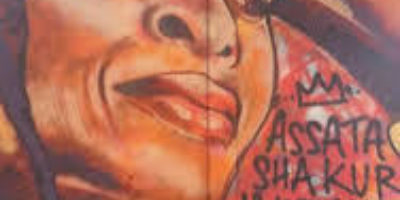

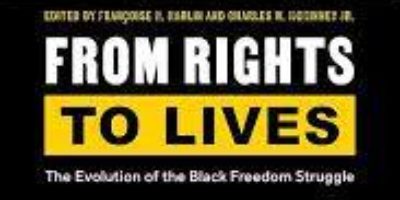

Description
In this online panel on “State Violence: Prisons, Police, Politics,” five scholars dive into the histories behind the contemporary abolitionist movement. Orisanmi Burton, author of Tip of the Spear: Black Radicalism, Prison Repression, and the Long Attica Revolt, challenges the dominant historiography of the Attica Rebellion, situating it instead within a longer history of revolt within and beyond New York State's prisons and jails. Donna Murch will discuss Assata Taught Me: State Violence, Racial Capitalism, and the Movement for Black Lives, diving deeply into the Black left politics of the 1980s and 1990s and the emergence of an abolitionist feminist movement. Mary Phillips, author of Black Panther Woman: The Political and Spiritual Life of Ericka Huggins, will share about the grounded praxis developed by Black Panther Party political prisoner Ericka Huggins to resist state violence inside the belly of the beast. Charles McKinney will discuss the long Black freedom movement and the edited collection he published alongside co-editor Francoise Hamlin, From Rights to Lives: The Evolution of the Black Freedom Struggle.
Speakers
-

Mary Phillips
University of Illinois Urbana-Champaign
Mary Frances Phillips (BS, Michigan State University; MA, The Ohio State University; Ph.D., Michigan State University) is an Associate Professor of African American Studies at the University of Illinois in Urbana-Champaign. Her interdisciplinary research agenda focuses on race and gender in post-1945 social movements and the carceral state. Her research areas include the Modern Black Freedom Struggle, Black Feminism, and Black Power Studies.
Her book, Black Panther Woman: The Political and Spiritual Life of Ericka Huggins will be released in January 2025 with New York University Press’ Black Power Series. Black Panther Woman is both a critical study and biography of Black Panther Party veteran Ericka Huggins, one of the longest-serving women members in the organization. Her book historicizes women’s prison organizing, resistance, and collision with law enforcement of women political prisoners. She has published journal articles in SOULS: A Critical Journal of Black Politics, Culture, and Society, the Women’s Studies Quarterly, the Western Journal of Black Studies, Spectrum: A Journal on Black Men, and the Syllabus Journal. Outside of the academy, her essays have been featured in the Huffington Post, Ms. Magazine blog, New Black Man (in Exile), Colorlines, Vibe Magazine, Black Youth Project, and the African American Intellectual History Society’s blog, Black Perspectives. Her work has garnered media attention in TIME Magazine, the New-York Historical Museum & Library Women at the Center blog series, the Detroit Free Press; BronxNet Cable Television; Bronx News 12; WBAI Pacifica Radio, New York City; and WNPR, Connecticut Public Radio.
-
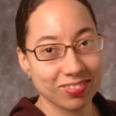
Donna Murch
Rutgers University New Brunswick
Dr. Murch’s is an associate professor of History at Rutgers University in the School of Arts and Sciences. Her interests include the urban history of California and New York; Civil Rights, Black Power and postwar social movements; history of policing and prisons; and the political economy of drugs. Currently, she is researching the postwar history of the Bronx and completing a new book on youth culture and underground economy. She is also the author of Living for the City: Migration, Education, and the Rise of the Black Panther Party in Oakland, California, University of North Carolina Press, October 2010.
-
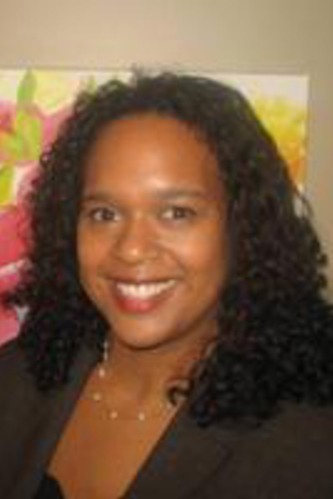
Françoise N. Hamlin
Brown University
Françoise N. Hamlin (Ph.D. Yale University, 2004) is an Associate Professor in History and Africana Studies. She earned her Masters from the University of London, and her B.A. from the University of Essex (both in United States Studies). Hamlin is the author of Crossroads at Clarksdale: The Black Freedom Struggle in the Mississippi Delta after World War II (University of North Carolina Press, 2012), winner of the 2012 Berkshire Conference of Women Historians Book Prize and the 2013 Lillian Smith Book Award. These Truly Are The Brave: An Anthology of African American Writings on Citizenship and War is a co-edited anthology published by the University of Florida Press in 2015. It was a finalist for the QBR 2016 Wheatley Book Award in Nonfiction, and was republished in paperback in 2018. Hamlin's new research focuses on youth, trauma, and activism.
At Brown she teaches undergraduate and graduate courses primarily in twentieth century U.S. history, African American history, southern history, cultural studies and Africana Studies. Prior to joining the faculty at Brown, Professor Hamlin was a DuBois-Mandela-Rodney fellow at the University of Michigan (2004-2005), and an Assistant Professor of History at the University of Massachusetts, Amherst (2005-2007). Since then she has been a Charles Warren Center Fellow at Harvard University (2007-2008), and a Woodrow Wilson-Mellon Fellow (2010-2011). Most recently she was the American Council of Learned Societies, Frederick Burkhardt Fellow (2017-2018) at the Radcliffe Institute. She is currently an Andrew Carnegie Foundation fellow (2021-2023).
-
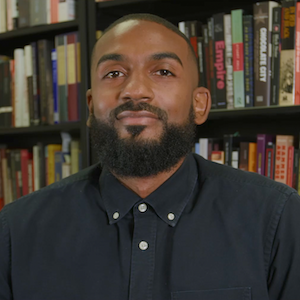
Orisanmi Burton
American University
As a social anthropologist working in the United States, my research examines the imbrication of grassroots resistance and state repression. Within this broad area of inquiry, my present work explores the collision of Black-led movements for social, political, and economic transformation with state infrastructures of militarized policing, surveillance, and imprisonment. I analyze the productivity of this collision; how it gives rise to new formations of knowledge, subjectivity, intimacy, gender, organization, and statecraft across time and space. I ask: how do Black radical demands generated within and against US prisons presage alternative futures for people and places on both sides of prison walls? In what ways have state-organized responses to these demands - via diverse configurations of repression, reform, and incorporation – been key drivers of US historical development and state formation? Through what bureaucratic, ideological, and material processes is this dynamic political struggle transformed into an administrative problem of “criminal justice”? How can conceptualizing the US prison as a domain of war open new analytical, theoretical, and methodological terrain? My first book Tip of the Spear: Black Radicalism, Prison Repression, and the Long Attica Revolt was published in October 2023 by The University of California Press.